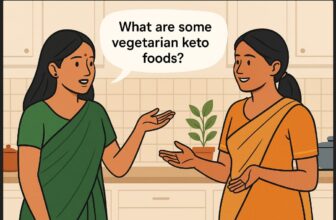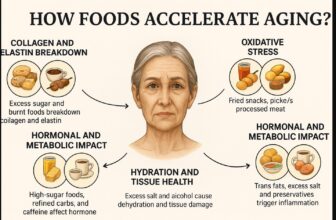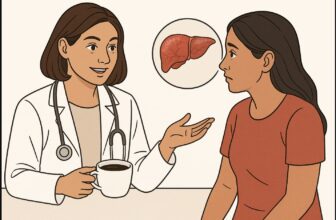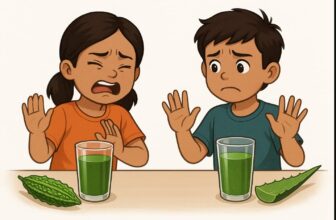Cancer rates in India are rising steadily, and food habits play a larger role than most people realize. While tobacco and alcohol get most of the attention, many everyday foods, especially when poorly processed, stored, or consumed frequently, can silently contribute to cancer risk. These aren’t always foreign or packaged foods; many are found in regular kitchens, tiffin’s, and street stalls.
This listicle lists 20 such foods commonly consumed across Indian households, street corners, and workplaces, along with the reasons they’re worth being cautious about.
1. Ultra-Processed Packaged Foods
Products like instant noodles, masala mixes, processed cheese spreads, and ready-to-eat snacks often contain preservatives, emulsifiers, refined sugars, and artificial flavors. These additives disrupt gut bacteria and trigger chronic inflammation, a key factor in the development of several cancers.
2. Deep-Fried Street Foods
Samosas, pakoras, bhature, jalebis, and pooris are often fried in reused oils at high temperatures. This repeated heating forms acrylamide and trans fats, both of which have been linked to cancer development, especially in the digestive system.
3. Reheated or Overused Cooking Oils
In Indian homes and eateries, the same oil is often used multiple times for frying. Overheating oil breaks it down into free radicals and toxic aldehydes, which can damage DNA and cells over time, raising the risk of breast, colon, and pancreatic cancer.
4. Charred or Burnt Meats (BBQ, Tandoori, Grilled)
Tandoori chicken, kebabs, and barbequed meats cooked over high flame can produce HCAs (heterocyclic amines) and PAHs (polycyclic aromatic hydrocarbons). Both compounds are carcinogenic and have been linked to gastrointestinal and colorectal cancers when consumed regularly.
5. Sugary Drinks and Refined Carbohydrates
Sweetened beverages like sodas, packaged fruit juices, and glucose-based drinks spike insulin levels and contribute to obesity. High sugar intake increases the risk of cancers related to hormones, such as breast and endometrial cancers. Similarly, refined carbs like white bread and maida-based snacks offer no fiber and fuel chronic inflammation.
6. Processed and Red Meats
Items like sausages, bacon, salami, and some chicken nuggets are classified as Group 1 carcinogens by the WHO. They often contain nitrates and nitrites, which convert into carcinogenic compounds in the stomach. Regular consumption has been linked to colorectal, stomach, and pancreatic cancers.
7. Betel Nut (Supari) and Gutka
Chewing areca nut (often mixed with tobacco as gutka) is culturally common in several Indian states. However, it’s a major risk factor for oral, throat, and esophageal cancers. Even without tobacco, areca nut itself is classified as a probable human carcinogen by the IARC.
8. Aflatoxin-Contaminated Foods
Improperly stored peanuts, rice, corn, and spices are at risk of growing mold that produces aflatoxins, one of the most potent liver carcinogens known. In warm and humid Indian conditions, this risk increases, especially when grains are stored without proper ventilation or drying.
9. Excess Dairy and High IGF-1 Levels
While dairy is part of a balanced diet, excessive intake (especially from hormone-boosted cattle) can increase levels of IGF-1 (insulin-like growth factor), which has been linked to prostate and breast cancers. Studies show that diets high in dairy may alter hormonal balance, especially in males.
10. Contaminated Tap Water
In many Indian cities, tap water during monsoons is a breeding ground for bacteria and may contain heavy metals, arsenic, or industrial pollutants, all of which are linked to cancer over long-term exposure. Boiling may not remove all harmful chemicals.
11. Salted and Pickled Foods
Traditional pickles (achar) made with excess salt, oil, or industrial preservatives can irritate the stomach lining. High-sodium diets also enhance the cancer-causing potential of Helicobacter pylori, a common stomach bacteria in India. Frequent consumption has been linked to stomach and esophageal cancers.
12. Refined Vegetable Oils
Heavily processed oils like sunflower, soybean, and palm oil are used widely due to affordability. But they often have high omega-6 content and are chemically treated, promoting inflammation when consumed excessively. Chronic inflammation is a key driver in many types of cancer.
13. Artificial Food Coloring in Street Sweets
Brightly colored halwa, jalebi, candies, and mithai often use non-permitted dyes like metanil yellow or rhodamine B. These are banned for human consumption but still used in many roadside or festival-time sweets. These synthetic colors have shown cancer-causing properties in animal studies.
14. Microwave Popcorn (With Artificial Butter Flavor)
Imported or premium microwave popcorn contains diacetyl for butter flavor and PFAS in the lining of the bag. Both chemicals are linked to lung, kidney, and liver cancers over prolonged exposure.
15. Plastic-Packaged Heat-and-Eat Meals
Heating parathas, dal-rice combos, or frozen meals in plastic packaging can leach BPA (Bisphenol A) or phthalates into the food. These are endocrine disruptors linked to breast, prostate, and uterine cancers.
16. Canned Foods with BPA or Sodium Nitrite
Canned beans, meats, and fruits in syrup often use BPA-coated linings and preservatives like sodium nitrite. Both compounds have shown hormonal and DNA-altering effects in studies, raising concerns about their long-term cancer risk.
17. Fermented Fish and Smoked Meats (Northeast India)
In regions like Nagaland and Mizoram, fermented or smoked meat and fish are dietary staples. These contain nitrosamines and other compounds that, if consumed regularly, have been associated with gastrointestinal cancers.
18. Adulterated Milk and Paneer
Unscrupulous dairies in parts of North India add urea, bleach, detergents, or starch to increase volume and shelf life. These chemicals are toxic to the liver and kidneys and may damage DNA, contributing to increased cancer risk over time.
19. Artificial Ice Candies and Colored Summer Drinks
Street vendors often use unsafe dyes and unclean water to make flavored ice candies or synthetic sodas. Children consuming these regularly may be exposed to heavy metals or toxins with known carcinogenic properties.
20. Over-Browned or Burnt Roti, Bread, and Toast
Heating starchy foods like roti or toast until they turn black creates acrylamide, a chemical shown to cause mutations in lab animals. Frequent exposure, even in small doses, raises long-term cancer concerns.
Why These Cancer Risks Are More Severe in India
- Climate-Driven Spoilage – India’s warm, humid weather makes it easier for mold, fungi, and bacteria to grow on stored grains, nuts, and spices, raising the risk of aflatoxins and foodborne illness, especially without proper packaging.
- Limited Oversight on Food Safety – Despite existing regulations, enforcement remains weak. Harmful dyes, industrial-grade preservatives, and banned ingredients still appear in sweets, pickles, and beverages, especially during festivals or at unregulated stalls.
- Lack of Label Transparency – A significant portion of street food and loose-packaged groceries are sold without ingredient lists, expiry dates, or processing information, leaving buyers unaware of potential health hazards.
- Cultural Normalization of Risky Habits – Chewing gutka or paan, frequent deep-frying, and excessive use of processed dairy are considered routine in many regions, despite their long-term health effects being well documented. These habits often go unchallenged due to generational acceptance.
Small Shifts That Can Reduce Your Exposure
- Use Safer Cooking Oils – Skip reheating the same oil multiple times. Opt for cold-pressed mustard, groundnut, or filtered oils instead of heavily refined or reused oils.
- Cut Back on Long-Shelf-Life Packaged Foods – Limit snacks and ready meals that rely on artificial colors or preservatives, especially those that stay fresh for months without refrigeration.
- Store Staples the Right Way – Wash grains, pulses, and nuts before storage, and keep them in dry, airtight containers to prevent mold and aflatoxin growth.
- Ditch Plastic in the Microwave – Reheat or cook food only in glass or stainless-steel containers to avoid chemical leaching from plastics.
- Switch to Gentler Cooking Methods – Replace deep-frying and open-flame charring with baking, steaming, or sautéing, methods that preserve nutrients and reduce the formation of harmful compounds.





